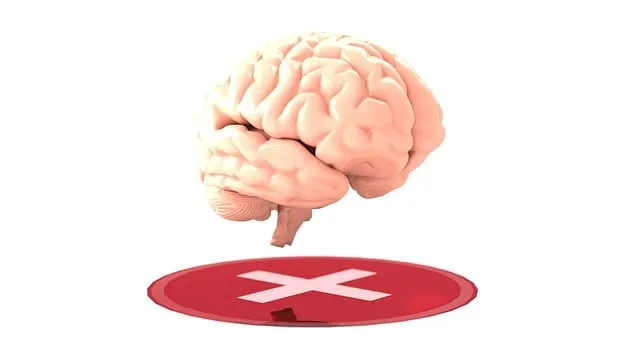The Colorado Springs Kaiser Permanente behavioral health center prioritizes cultural competency in healthcare delivery, recognizing the diverse needs of its community. Through comprehensive training programs, interactive workshops, role-playing scenarios, and case studies tailored to various cultural backgrounds, they empower staff to offer culturally responsive care. Evaluation through pre- and post-training surveys, focus groups, patient satisfaction tracking, referral analysis, and staff retention rates ensures continuous improvement in their commitment to serve all patients effectively.
Healthcare provider cultural competency training is a vital aspect of modern medical practice, ensuring patient-centered care in an increasingly diverse society. This article explores the importance of cultural competence, using the Colorado Springs Kaiser Permanente Behavioral Health Center as a case study—a center renowned for its commitment to diversity and inclusion. We delve into effective training program design and assessment methods, providing insights that can enhance cultural competency across healthcare settings.
- Understanding Cultural Competency in Healthcare: A Necessity in Modern Practice
- The Colorado Springs Kaiser Permanente Behavioral Health Center: A Focus on Diversity and Inclusion
- Designing Effective Training Programs for Healthcare Providers
- Measuring Impact: Assessing and Improving Cultural Competency After Training
Understanding Cultural Competency in Healthcare: A Necessity in Modern Practice

In today’s diverse and interconnected society, cultural competency has become a vital aspect of healthcare delivery. The Colorado Springs Kaiser Permanente behavioral health center recognizes that understanding and respecting different cultures, beliefs, and values are essential to providing quality care. Cultural competency goes beyond simple awareness; it involves being able to navigate and bridge the gap between diverse communities and healthcare systems. This is particularly crucial in addressing mental health issues, such as depression prevention, where cultural sensitivity can significantly impact treatment outcomes.
The center’s commitment to this concept is evident in its Risk Management Planning for Mental Health Professionals, which emphasizes the importance of emotional healing processes tailored to individual and community contexts. By fostering cultural competency, the healthcare provider ensures that every patient receives care that considers their unique background, thereby promoting better engagement, trust, and ultimately, more positive health outcomes.
The Colorado Springs Kaiser Permanente Behavioral Health Center: A Focus on Diversity and Inclusion

The Colorado Springs Kaiser Permanente Behavioral Health Center stands as a beacon of hope and healing for individuals seeking support for their mental wellness. This center recognizes the profound impact of cultural competency in healthcare, ensuring that services are accessible and tailored to meet the diverse needs of its community. By prioritizing diversity and inclusion, they foster an environment where everyone feels seen, heard, and valued.
Through innovative public awareness campaigns development and effective communication strategies, the center educates and engages individuals from various cultural backgrounds. Their approach emphasizes the importance of understanding different perspectives, beliefs, and practices to deliver culturally responsive care. This commitment extends to training sessions that empower staff with the skills to navigate complex conversations, ensuring every patient receives respectful and empathetic treatment.
Designing Effective Training Programs for Healthcare Providers

Designing effective training programs for healthcare providers is a multifaceted process, especially within diverse settings like the Colorado Springs Kaiser Permanente behavioral health center. These programs aim to enhance cultural competency, which is crucial in delivering quality care to an increasingly varied patient population. A well-rounded training regimen should incorporate various interactive and educational strategies.
For instance, workshops focused on stress management and emotional well-being promotion techniques can equip providers with tools to support not just patients’ physical health but also their mental and cultural needs. Role-playing scenarios and case studies specific to different cultural backgrounds can improve healthcare provider cultural competency training, fostering a deeper understanding of diverse perspectives. By integrating these approaches, the Colorado Springs Kaiser Permanente behavioral health center can create a more inclusive environment, ultimately improving patient outcomes and satisfaction.
Measuring Impact: Assessing and Improving Cultural Competency After Training

After completing cultural competency training, evaluating its impact is crucial to ensure improvements are sustained and meaningful change occurs. This process involves assessing both knowledge acquisition and behavioral shifts among healthcare providers at Colorado Springs Kaiser Permanente’s behavioral health center. One effective method is through pre-and post-training surveys that gauge participants’ understanding of cultural competency concepts and their self-reported confidence in providing culturally sensitive care. Additionally, qualitative feedback through focus groups or interviews can offer deeper insights into how training has influenced clinical practice and the overall patient experience.
To further strengthen these efforts, ongoing monitoring and quality improvement initiatives are essential. This could include tracking patient satisfaction ratings for cultural sensitivity, analyzing referral patterns to mental health education programs designed to cater to diverse communities, and examining staff retention rates as burnout prevention strategies for healthcare providers become integral parts of the center’s culture. Such continuous assessment allows for adaptive learning and refinement, ensuring that cultural competency training remains effective over time.
Cultural competency training is a game-changer in healthcare, as evidenced by the successful initiatives at the Colorado Springs Kaiser Permanente behavioral health center. By understanding and addressing diversity and inclusion, healthcare providers can significantly improve patient care and outcomes. Effective training programs, tailored to address specific needs, measure impact through assessment, and continuously enhance cultural competence, ensuring that every patient receives respectful, equitable treatment. This approach is vital in today’s diverse society and will help foster a more inclusive healthcare environment.






